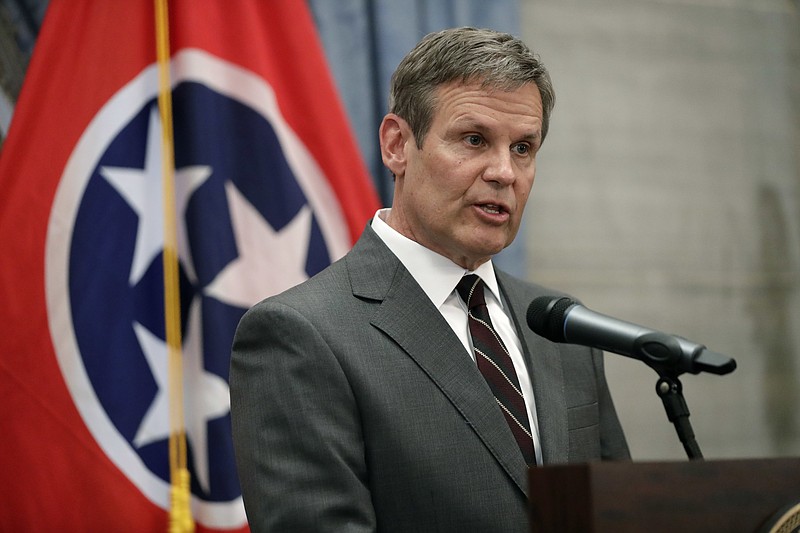We don't believe it would matter if a wealthy foundation stepped forward to put $25 million into an "educational savings account" for students in low-performing public schools to attend "an independent school of their choice at no cost to their family."
The Tennessee Education Association (TEA) still would not support it.
So expecting the TEA to support a voucher program that does not take $1 from public education funding but is nevertheless paid through state funds is a pipe dream.
But the organization ought to support the program. It ought to be in lockstep with the governor in trying to be innovative in trying to give every student "access to a great education," as Tennessee Gov. Bill Lee said in his first State of the State address on Monday.
Unfortunately, even before all the details could be worked out, TEA President Beth Brown played the negativity card on something that isn't in adherence with the way public education has been offered for more than a century.
She had "deep concerns" about "massive funding" for the program, which she was sure would have "less accountability" and be "more susceptible to fraud and abuse" than public education.
The TEA leader also shamed Lee for the idea, saying the money for the voucher program and for public-affiliated charter schools could be plowed into additional raises for teachers and for the school supplies they often buy for their classrooms.
The state's K-12 teachers, meanwhile, are scheduled to get a 2.5 percent raise in the governor's fiscal 2020 budget (which is increasing only 1.1 percent overall and which gives other state employees a 2 percent raise). That follows teacher raises in at least the last three years of the Republican administration of Lee's predecessor, Gov. Bill Haslam.
Even though local districts decide how the raises will be distributed, for professionals who have had few or no raises over the last decade, the poor-mouthing seems, at least, ungrateful.
Parents of children in poor-performing schools, on the other hand, are likely to be extremely grateful. In poll after poll, interview after interview, parents of such children across the country have expressed the desire for more education choices for their children.
Lee, before running for governor, had heard that call and made a voucher program one of his campaign promises.
"We're not going to get big results in our struggling schools by nibbling around the edges," he said in Monday's speech. "That is why we need Education Savings Accounts in Tennessee this year."
His proposal would put $25.45 million into a program that would provide an estimated 5,000 students $7,300 per student to use to attend private schools.
Maxed out, that would be $36.5 million, so we're not sure whether the 5,000 student number is too ambitious, the $7,300 amount might be significantly less for some students, or both, or what.
However, the program would be limited to low-income students in districts with three or more schools ranked in the bottom 10 percent of schools across the state. That limits it, for the moment, to students in Hamilton County, Davidson (Nashville), Knox (Knoxville), Madison (Jackson), Shelby (Memphis) and the Achievement School District, which is a state-run district attempting academic intervention in specific Memphis and Nashville schools.
Lee, like Haslam before him, is making a concerted effort to move the state forward from its once bottom-10 place in education in the country. Following significant Haslam investments in higher education, in K-12 education and in teacher raises, Lee is proposing a program to expand high school students' access to vocational and technical training (mainly at the state's technical colleges), $46 million for the state's Basic Education Program funding formula, $30 million in combined onetime and continuing funding for school safety measures, and $25 million for vocational and technical-school training for work-based learning programs and apprenticeships.
The governor's vouchers proposal, even for its first year, is more ambitious than ones suggested but never passed over the last half decade. Of those, most have been pilot projects, one would have targeted only Memphis schools and one would have been geared to students in only the bottom 5 percent of state schools.
While we believe it is time for such an innovative program to assist low-income children in poor-performing schools, we believe such a project demands strict accountability. The money moving from state to school must be administered properly, the majority of individual students must make progress and the success of the overall program should be evaluated annually and rigorously.
We believe such a program will show that poor children backed by parents who want to see their child's educational options increased will succeed in an environment where the preponderance of students want to learn and where they feel safe, challenged and encouraged.
